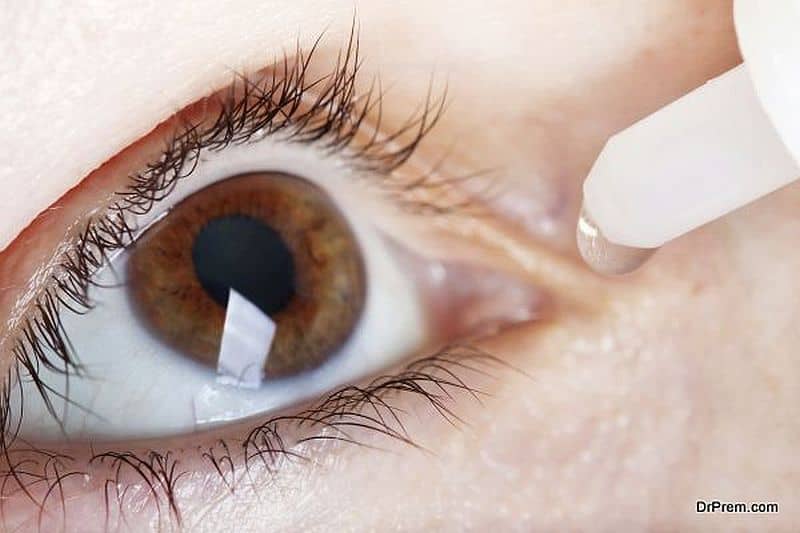Taking care of your eyes is crucial for maintaining good vision and overall eye health. Our eyes are precious, and a few simple practices can go a long way in preserving their well-being. In this article, we will discuss seven essential ways to take care of your eyes.
1. Regular Eye Exams
Scheduling regular eye examinations with an optometrist or ophthalmologist is essential for maintaining good eye health. These professionals can detect early signs of eye diseases, such as glaucoma, cataracts, and macular degeneration, which are often asymptomatic in their early stages. Early detection and treatment can prevent vision loss. Make sure your children are examined for myopia also.
2. Proper Nutrition
A balanced diet rich in nutrients can significantly contribute to eye health. Foods like leafy greens, carrots, sweet potatoes, and fish are high in vitamins and minerals like vitamins A, C, and omega-3 fatty acids, which are beneficial for your eyes. Antioxidants like lutein and zeaxanthin can also help protect your eyes from harmful UV rays.
3. Protective Eyewear
Whenever you are engaged in activities that could potentially harm your eyes, such as sports, DIY projects, or working with chemicals, make sure to wear appropriate protective eyewear. Safety glasses or goggles can shield your eyes from flying debris, chemicals, or other hazards, reducing the risk of eye injuries.
4. Blink and Rest
In today’s digital age, we spend a significant amount of time in front of screens—computers, smartphones, and tablets. This prolonged screen time can lead to digital eye strain or computer vision syndrome. To mitigate this, practice the 20-20-20 rule: every 20 minutes, take a 20-second break to look at something 20 feet away. Blinking regularly also helps keep your eyes moist and reduce dryness.
5. Proper Contact Lens Care
If you wear contact lenses, it’s essential to follow proper hygiene and care guidelines provided by your eye care professional. Clean your lenses regularly, avoid sleeping in them unless prescribed, and replace them as recommended. Failure to do so can lead to eye infections and discomfort.
6. UV Protection
Prolonged exposure to ultraviolet (UV) rays from the sun can increase the risk of eye conditions like cataracts and macular degeneration. When outdoors, wear sunglasses that offer UV protection. Look for sunglasses labeled with UV400 or 100% UV protection to ensure your eyes are adequately shielded.
7. Avoid Smoking
Smoking is detrimental to your overall health, including your eyes. It can increase the risk of developing age-related macular degeneration, cataracts, and other eye diseases. Quitting smoking is one of the best things you can do to protect your eyes and improve your overall well-being.
8. Adequate Sleep
Getting enough restful sleep is vital for your eye health. During sleep, your eyes have a chance to relax and recover from the day’s strain. Lack of sleep can lead to dry, irritated eyes and may exacerbate conditions like dry eye syndrome. Aim for 7-9 hours of quality sleep per night to keep your eyes refreshed and functioning optimally.
9. Stay Hydrated
Proper hydration is essential for maintaining the moisture levels in your eyes. Dehydration can lead to dry eyes and discomfort. Make sure to drink enough water throughout the day to keep your body, including your eyes, adequately hydrated.
10.Manage Chronic Health Conditions
Conditions like diabetes and hypertension can have a significant impact on your eye health. Manage these conditions effectively by following your healthcare provider’s recommendations. High blood sugar levels, for example, can damage the blood vessels in your eyes, leading to diabetic retinopathy, a serious eye condition.
11.Eye-Friendly Work Environment
If you have a job that involves prolonged computer use, ensure your workspace is set up to reduce eye strain. Use proper lighting, adjust your monitor’s position to reduce glare, and consider using an anti-glare screen filter. Ergonomic adjustments can also help reduce the risk of eye and neck strain.
Incorporating these additional practices into your daily routine can further enhance your eye care regimen. Remember that while these tips are beneficial, everyone’s eyes are unique, and it’s essential to consult with an eye care professional for personalized guidance and recommendations based on your specific needs and any pre-existing conditions. Get the best eye care products of your need by consulting your doctor. By prioritizing your eye health and following these guidelines, you can enjoy clear vision and maintain the well-being of your eyes for years to come.
In addition to these essential practices, it’s also essential to be aware of any changes in your vision or any unusual symptoms in your eyes. If you experience sudden vision changes, eye pain, redness, or discharge, seek immediate medical attention. These could be signs of an underlying eye condition that requires prompt treatment.
Article Submitted By Community Writer




